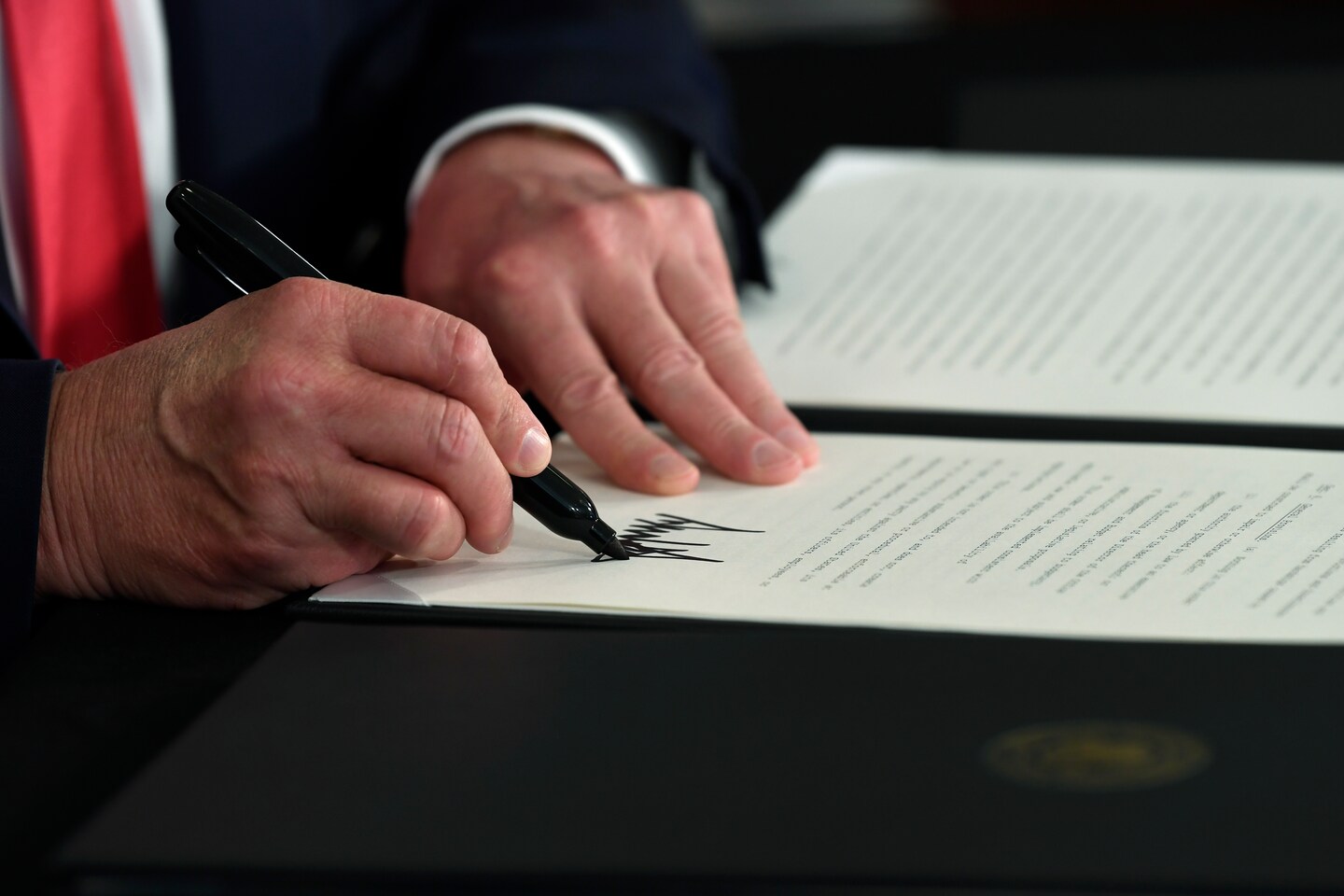Trump’s executive actions are overreach. The next president will likely do worse.

The same thorny issue arises in the enforcement of the laws. Forget President Barack Obama’s famous threat to unilaterally solve the nation’s immigration dispute — “I’ve got a pen” — that resulted in his Deferred Action for Childhood Arrivals program. His decision not to enforce federal drug laws against marijuana after Colorado and Washington legalized its sale is the bigger offense against congressional sovereignty. The action clearly established the principle that the president can ignore a law if he or she disagrees with it. Even the dullest minds can drive a truck through that to undo congressional power wholesale.
That’s effectively what President Trump is doing with his order to grant employees deferrals on their payroll taxes. He’s effectively saying that he has the power not to collect taxes levied by Congress, and if he can do that for the payroll taxes that fund Social Security and Medicare, he can do that for any tax. Imagine what power that coveys: A president can decide which group to favor with his beneficence and bestow literally billions of dollars on them. Hurt by Chinese imports? Trump in his wisdom can defer your corporate taxes. Angry about the limitation on the deductibility of state and local taxes on federal income tax forms, which was part of Trump’s 2017 tax cut bill? No worries, President Joe Biden can direct the IRS to defer collection of the taxes on those excess deductions and decline to prosecute offenders. Either set of actions would be obviously unconstitutional, but both flow directly from the Obama and Trump precedents.
One could say the court would step in to stop these shenanigans, but the politicization of our courts means it would likely do so on a selective basis. Roberts again strikes here, as his recent decision in the case preventing Trump from undoing Obama’s DACA program without going through the lengthy process mandated by the Administrative Procedure Act would logically require Trump’s successor to do the same thing. Should the court deny Trump’s orders but let its DACA precedent stand, it will stand revealed for what many people already think it is: a political entity to which the law is merely the means for carrying out its political will.
Political polarization makes executive power gains even likelier. Obama’s DACA program was his answer to legislative stalemate between Democrats who wanted some form of amnesty for undocumented immigrants and Republicans who did not. Trump’s orders arose from a similar stalemate in the discussions over the proposed covid-19 relief bill. Anything that appears intractable cries out for a solution, especially if the dispute is longstanding or if the action deals with a genuine crisis. Trump acted because both sides were unable or unwilling to make genuine compromises in the national interest.
Other serious democracies do not have this problem. France’s president is often given power by the legislature to rule by decree, but he does not act on his own without such authorization. Presidents elsewhere often have to rely upon their ability to persuade the legislature to act, such as when former Mexican president Enrique Peña Nieto pushed the opposition-controlled Mexican congress to amend the country’s constitution to permit foreign companies to invest in and own portions of the country’s oil and gas sector. Parliamentary systems do not have an independent executive that can assert such power, but even coalition governments are able to overcome their differences and act to solve crises and pressing problems. The United States is exceptional in its governmental ineptitude.
Genuine dictators often arise to establish order when democracies prove unable to effectively govern. Words on old parchment won’t control an executive determined to rule. Only a congress and political parties who care more about the country and less about their relative power can do that. We, the people, should demand that they do.
Read more:






